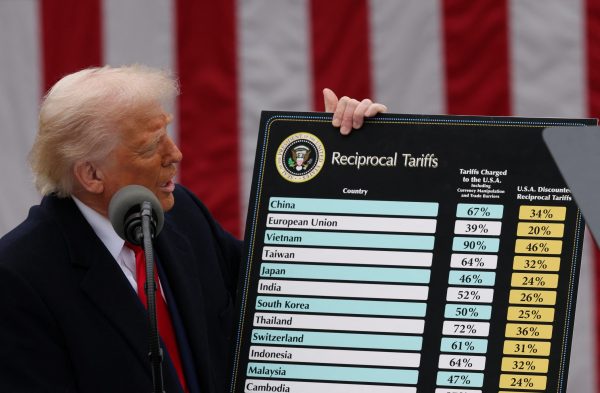
Vacant job positions in Greece saw a sharp increase of 32.6%, approaching 49,000 in the third quarter of 2024, marking the highest recorded number of vacancies for this period since data collection began in 2009 by the Hellenic Statistical Authority (ELSTAT).
Relevant data indicate that although unemployment is decreasing in the Greek labor market, employment on the other hand, is not increasing at a similar pace. In fact, employment decreased in the third quarter compared to the immediately preceding quarter, even though it should have increased, as it coincides with the peak of the Greek tourism season.
On an annual basis, the number of employed people increased by 1.7%, down from 2% in the second quarter. These results indicate a slight slowdown in employment growth in the third quarter of 2024.
During the same period, labor costs decreased by 2.9%, a direct contrast to the 5.1% rise in the average labor costs in the EU.
According to data released by Eurostat, the “devaluation” of hourly wages in Greece was the main factor driving the overall reduction in labor costs, which fell by 2.6%, as non-wage costs also dropped by 1.7%. This breaks the previous trend of increasing hourly wages, which had been above the EU average.
A key reason for the seemingly paradoxical rise in vacant job positions, despite the fact that employment rates remain among the lowest in the EU, is often attributed to the so-called “skills mismatch.” Employers are looking for different skills than those possessed by job candidates.
According to the OECD, Greece has one of the highest rates of overqualified workers in the EU—those who have more formal qualifications than are required for the positions they hold.
Specifically, nearly one in three higher education graduates in Greece has an excess of skills, the second highest rate in the EU, following Spain.
Among employed graduates aged 25-34, nearly four out of ten are overqualified, the highest percentage among all age groups and the highest in the EU.
Additionally, the percentage of underemployed individuals—those who studied one field but are working in a completely different job—approaches 42%, which is also one of the highest rates among OECD countries and significantly higher than the EU average, at 32%.
Source: Tovima.com
Latest News

Trump Tariffs Jeopardize Growth: Piraeus Chamber of Commerce
The tariffs, aimed at reducing the U.S. trade deficit, are expected to have both direct and indirect effects on the European economy

EU Condemns Trump Tariffs, Prepares to Retaliate
As tensions escalate, the EU is expected to continue negotiations with Washington while preparing for potential economic retaliation.

The Likely Impact of Trump Tariffs on Europe and Greece
Trump tariffs are expected to negatively affect economic growth in the Eurozone while Greece's exports could take a hit.

Motor Oil Results for 2024: Adjusted EBITDA of 995 mln€; Proposed Dividend of 1.4€ Per Share
Adjusted EBITDA for 2024 was down 33% yoy. The adjusted profit after tax for 2024 stood at 504 million euros, a 43% decrease from the previous year

Cost of Living: Why Greece’s 3% Inflation Is Raising Alarm
Greece appears to be in a more difficult position when it comes to price hikes, just as we enter the era of Trump’s tariffs.

Fitch Ratings Upgrades the Four Greek Systemic Banks
NBG’s upgrade reflects the bank’s ongoing improvements in its credit profile, Fitch notes in its report, including strong profitability, a reduction in non-performing exposures (NPEs), and lower credit losses

Trump to Announce Sweeping New Tariffs Wednesday, Global Retaliation Expected
With Trump's announcement just hours away, markets, businesses, and foreign governments are bracing for the fallout of one of the most aggressive shifts in U.S. trade policy in decades.

Inflation in Greece at 3.1% in March, Eurostat Reports
Average inflation in the eurozone settled at 2.2%, compared to 2.3% in February

Greece’s Unemployment Rate Drops to 8.6% in February
Despite the overall decline, unemployment remains higher among women and young people.

Jerry Kalogiratos Highlights Key Role of Energy Transition and Data Demand in LNG Outlook
Energy transition and the prospects of LNG were discussed at Capital Link’s 19th Annual International Maritime Forum, during a panel discussion with Jerry Kalogiratos (Capital Clean Energy Carriers Corp.)
























![ΕΛΣΤΑΤ: Αυξήθηκε η οικοδομική δραστηριότητα κατά 15,6% το Δεκέμβριο [πίνακες]](https://www.ot.gr/wp-content/uploads/2025/03/DSC9655-2-1024x569-1-90x90.jpg)

















 Αριθμός Πιστοποίησης
Αριθμός Πιστοποίησης